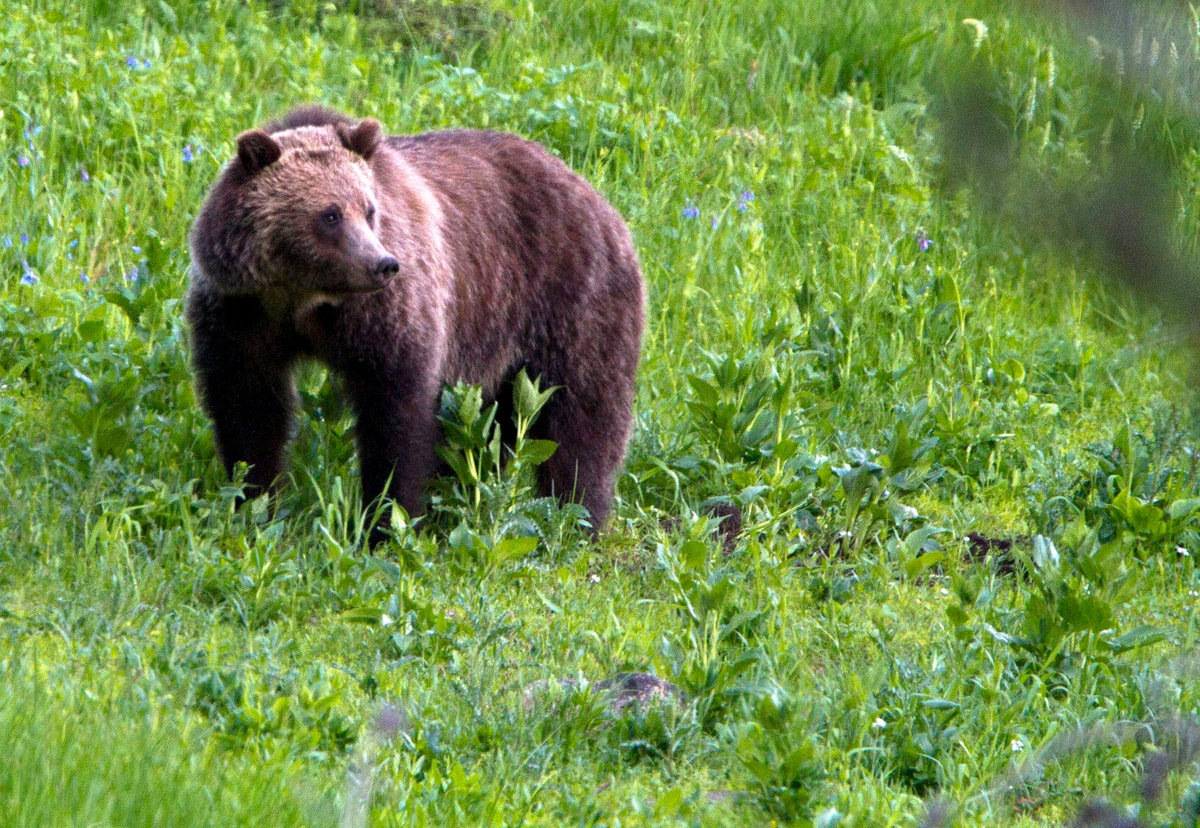
An appeals court is sending a plan to allow continued cattle grazing in a vast, mountainous area of western Wyoming back to federal forest and wildlife officials, telling them to consider limiting how many of the area's female grizzly bears may be killed for preying on livestock.
Thursday's ruling by the 10th U.S. Circuit Court of Appeals in Denver sides largely with environmental groups who sued the U.S. Fish and Wildlife Service and U.S. Forest Service in 2020 over female grizzly deaths — a key factor in the species' survival in and around Yellowstone National Park.
Many consider the Yellowstone region's grizzlies a conservation success story. While they remain protected under the Endangered Species Act, their numbers have surged as much as tenfold, to as many as 1,000 animals, since the 1970s.
Population growth has meant more encounters with people and livestock, however, with the bears often on the losing end. Hunters sometimes mistake grizzlies for legal-to-hunt black bears or kill grizzlies in self-defense — and wildlife managers often kill grizzlies that prey on cattle and sheep.
Such deaths have been increasingly common in the Green River headwaters in the Wind River Range, where in 2019 the U.S. Forest Service granted a 10-year extension allowing almost 9,000 cattle to graze on 270 square miles (690 square kilometers) of Bridger-Teton National Forest.
The plan said wildlife managers could kill up to 72 grizzlies — or about seven bears a year — over 10 years of grizzlies continuing to attack grazing livestock. The total would be double the number of grizzlies killed in the area over the previous 20 years.
Exceeding the plan's limit, which doesn't distinguish between male and female grizzlies, could result in stricter conservation measures to protect grizzlies.
Environmental groups sued, saying the plan should specify limits on killing female grizzlies, whose numbers are especially critical to the species' success since they bear cubs.
A district court judge in Wyoming ruled against the groups in 2022 but the five groups that sued, including the Sierra Club and Center for Biological Diversity, welcomed the appeals court ruling.
“This ruling confirms that federal officials can’t sidestep the law to allow grizzly bears to be killed on public lands to appease the livestock industry," Center for Biological Diversity attorney Andrea Zaccardi said in a statement.
U.S. Fish and Wildlife Service spokesperson Joe Szuszwalak declined to comment on the ruling. U.S. Forest Service officials didn't immediately return an email request Thursday seeking comment.
Previous grazing plans for the area had put limits on killing female grizzlies, the three-judge appeals court panel pointed out, but the latest offered no explanation for not doing so again.
Not considering limits on killing female grizzly bears or how female grizzly deaths would affect the area's overall population was “arbitrary and capricious,” the appeals court ruled.
The judges upheld part of the plan that seeks to reduce deadly encounters between grizzlies and livestock, such as by requiring those tending to the cattle to carry bear-repellent spray.







